Collaborating with the Imperium
Looking beyond left-Kurdish vs. Islamist-Turkish political slurs
Yesterday, I was reading an essay by the Kurdish intellectual Fırat Aydınkaya on the Turkey and the fall of Assad. It was good. A a bit over the top, but good. Aydınkaya is a well known writer as well as a defense lawyer to many in the Kurdish movement, including Selahattin Demirtaş. In the essay, he ruminates on how Turkish Islamists have long been deeply pragmatic, and that they’re now embarked on a new kind of struggle in Syria.
Something was odd though. The whole essay was framed by Aydınkaya’s claim that HTS moved on Damascus with a green light not just from Turkey, but from Britain, though perhaps given the argument’s vintage, it might be more appropriate to say England. Yes, less seasoned observers might not see the contours, but Perfidious Albion was the real force behind the jihadi takeover of Syria. Aydınkaya doesn’t cite any evidence other than the illustrious history of the English as the great border artists of the Middle East.
He writes this in a very matter-of-fact way, like this:
It is probably no coincidence that the Kurds have never been at peace with the English throughout history. The history of the Kurds and the English is largely determined by the notion of colonialism. We Kurds are the invisible colony of the English, or rather we are the second-hand colony of the English. Since 1833, with the Tanzimat processes, with what they informed to Mahmut II and Abdülmecit, the English policy has been both a co-conspirator and the mastermind of the Ottoman Kurdish policy. For this reason, apart from the brief flirtatious period with Sheikh Mahmud, whenever English policy has attempted to design the Middle East geography, the Kurds have suffered blood and tears.
The problem isn’t that he’s necessarily wrong about what happened 200 years ago, but rather that he’s applying it so brazenly to what happened last month.
On an analytical level, we could probably all agree that the US has replaced the British in geopolitical reach, especially in the Middle East. Perhaps it’s just too awkward to say that the United States and Israel are behind it when the SDF’s commander is due to attend Trump’s inauguration in a few weeks.
But why whale on it so hard? Because Aydınkaya isn’t just deploying this image rhetorically. He keeps coming back to it throughout the essay, over and over again: Assad’s fall isn’t just a Turkish-jihadi thing, it’s an English thing, and isn’t that interesting, etc.
And this kind of argumentation isn’t confined to Aydınkaya alone. Turks and Kurds accuse each other of collaborating with “emperyalizm” (read “the West”) all the time. Both sides regularly claim that the other is serving the interests of Israel and the West more broadly. Unlike the example above, most of the time, there’s some kind of material evidence behind the claims. Assad’s fall has brought about the endgame of the Syrian Civil War, which has accelerated this game dramatically.
So what do we talk about when we talk about Western involvement in Syria? And to be specific, I mean Turkish-dominated Islamists (the Turkish state) and Kurdish-dominated leftists/anarchists (the PKK tradition).
I think we can use this question as a prism to think about the moral and systemic claims both sides are making. There’s a real clash here of contending world views, of way to exist in a broken Middle East, and it comes out in their views of the West.
So what do people on both sides mean when they’re talking about “collaboration”?
What the left-Kurds say
Not to re-hash too much history here, but the PKK started when a bunch of Kurdish students in Ankara read into the Marxist-Leninist literature, took to the mountains, and fought the Turkish state as well as the Kurdish landowners. Their radical progressive agenda went through twists and turns, and forty-odd years later, they found themselves in a quasi-anarchist, feminist, confederate structure in the middle of the Syrian Civil War. It happens.
I have a sense that Rojava is probably more centralized than they want us to think, but the fact remains that the PKK’s tradition has endured. They want to create something that’s different from the nationalist/capitalist/hierarchical structure that exists in Turkey and in the West. They seem as serious about that as one can be.
The PYD’s collaboration with the U.S., they would argue, is transactional. The PYD fights ISIS on behalf of the Americans, the Americans give it military support and basically make it untouchable to the Turkish military. The PYD remains free to create its own kind of progressive political order beyond Western influence.
They argue that Turkey is precisely the opposite. When the left-Kurds accuse Turkey working on behalf of the West, it’s a systemic criticism. What they’re actually saying is that Turkey, being a deeply nationalistic, individualistic, conservative, hierarchical, not to mention religious place, is “emperyalizm.” It is a NATO country that’s deeply integrated into global markets. Turkish Islamists claim that their religious identity sets them apart, but from a leftist perspective, it’s precisely what connects Turkey to the West. They point out that jihadi elements have acted as shock troopers of Western geopolitics, from Afghanistan in the 1980s to the present day, and that Syria is just another such case.
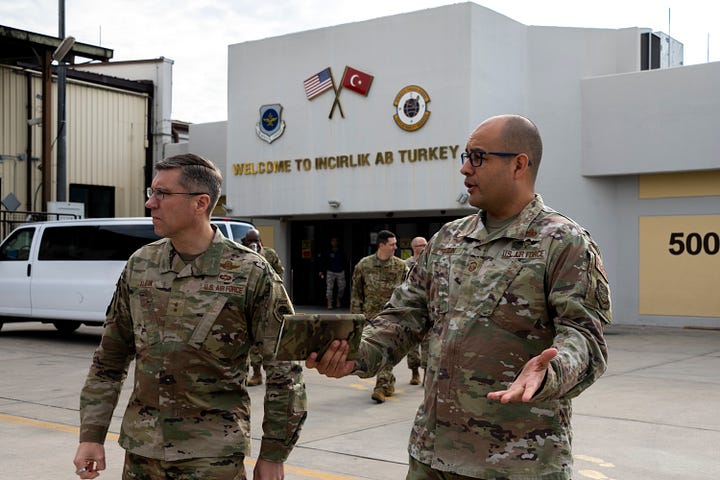
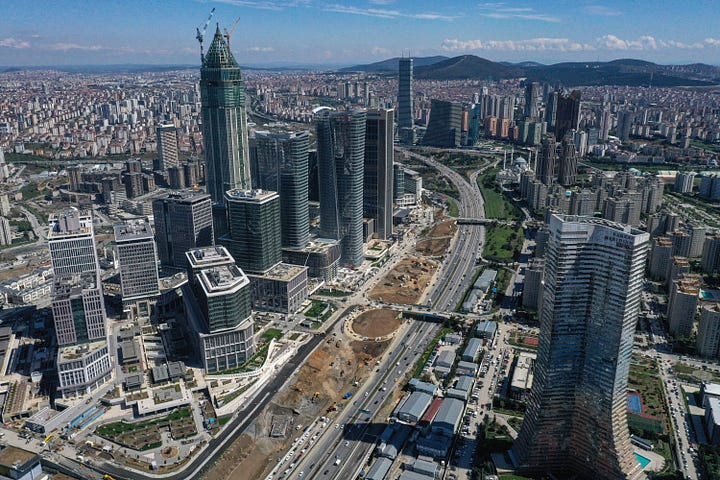
That argument isn’t quite made in as many words because of the contradictions that the left-Kurdish tradition faces. The HDP/DEM in Turkey’s Parliament need to argue for due process and the rule of law, and the Kurdish diaspora need to argue from a place of minority rights. These days they emphasize Turkey’s collaboration with jihadi elements and downplay the radical nature of their own agenda, but it’s a difference of emphasis, rather than substance.
What Turkish Islamists say
The folks in Ankara think all of that is bullshit.
For them, it’s really simple. Their priority is to get the U.S. and Europe out of the region, and the way they’ve chosen to go about that is to work with them to gradually replace them.
These are very practical men, and they don’t have any time to think about alternative forms of living. They run a modern economy and encourage “patriotism” in their population, but they don’t think those things make them capitalists and fascists. They think it makes them smart. It’s simply the way one generates power in the modern world. Plus, it feels very natural.
The Islamist movement has always implied that Western modernity is a menu, and you can kind of choose which parts of it you want, and which parts of it you don’t. They claim leave some symbolic offerings on the table, like feminism, LGBT culture and the theory of evolution, while availing themselves of things like supply chain management, precision engineering, and televangelism. Taking those things doesn’t make you like the evil empire, they say, as long as you make them your own.
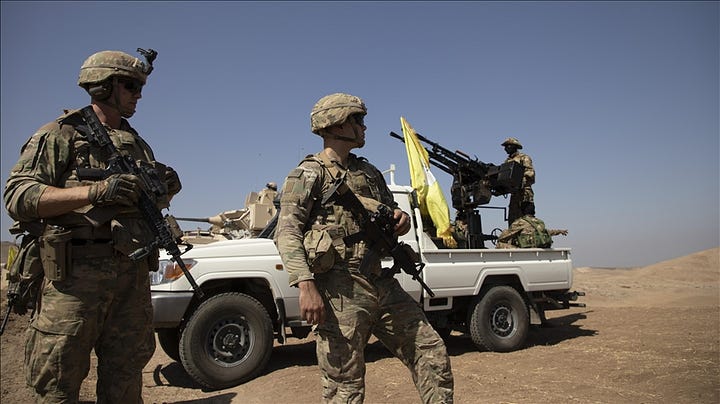
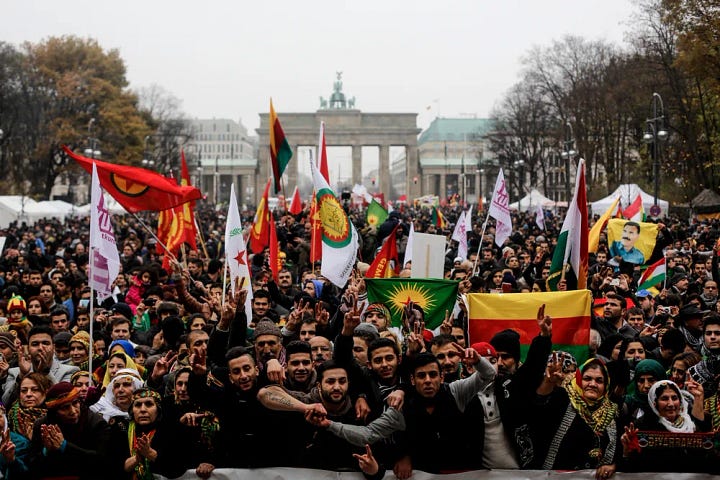
Meanwhile, Turkish Islamists consider PKK’s progressive ideology to be inherently Western, and therefore alien to the region. In that sense, they don’t see it as being very different from Zionist Israel. Not only do they think that these forces should be extirpated, they believe it’s inevitable that it will be. Because of how popular those causes are, they believe carrying that banner is going to accrue them power.
Looked at this way, the PYD is collaborating with the U.S. to delay the inevitable. They’re also pulling in the force that Turkey is trying very hard to get out of the region — at a time when the Americans themselves are ready to leave.
To sum up, both sides are talking about different things when they’re accusing the other of collaboration with “imperialism.” When the left-Kurds talk about it, it’s more about Western forms and influences, like neoliberalism, nationalism, militarism, and colonialism. When the Islamists Turks talk about it, it’s the progressive ideology and actual American boots on the ground. It’s in the nature of politics that these arguments rarely happen very explicitly though, so there’s a lot of rhetorical tricks on both sides.
They’re both right in their own ways. It really depends on your priors.
Revolutionary political projects only get tested when they succeed and establish themselves for the longer haul. It looks like Ankara will win out in the upcoming year, sending the Americans soldiers in Syria home, and shutting Rojava down. So I guess we’ll get to see the Turkish-Islamist play out, but not the left-Kurdish one.

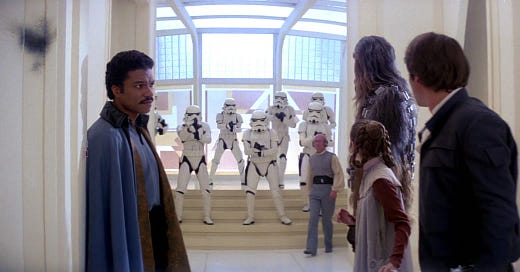



Trump wanted to bring the troops home from Syria last time, but he never succeeded. I'm sure there will be the same pressures this time to leave a "small" reserve force - controlling the hydrocarbons/agriculture in Syria just gives so much leverage.